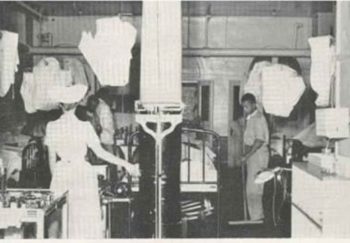On January 1, 1863, the Emancipation Proclamation declared slaves in "the rebellious states" free. But making freedom a reality didn't happen right away. It wasn't until June 19, 1865 that the news reached those enslaved in Texas, the westernmost state in the Confederacy. This day — when liberation actually happened for everyone — became known as Juneteenth.
At UVA Health, Juneteenth is a day to celebrate and mark our commitment to ensuring true freedom for all. That's because diversity, equity, and inclusion are central to our mission.
Marquita Taylor, PhD, MPH, MBA, is one leader at UVA Health working to promote health equity. She is the associate director of diversity, equity, and inclusion at UVA Cancer Center. We asked her to share her thoughts on Juneteenth, building health equity for Black Americans, and more.
What does Juneteenth mean to you personally? How are you celebrating?
Juneteenth, to me, is a celebration, an acknowledgment, a time to reflect, and an opportunity to affirm. Juneteenth is also an opportunity to honor triumphs, bravery, and the valuable contributions of change agents who risked their lives for the freedoms many enjoy today, and it is a reminder to hold space and rest. Juneteenth also means persistence; it means being unwavering in your fight.
I am celebrating Juneteenth by supporting Charlottesville community events, advocating for sickle cell awareness, which disproportionately impacts African Americans, resting as a form of resistance on June 19, and collaborating on workforce-centered Juneteenth programming here at UVA Health the week of Juneteenth.
UVA Health celebrates Juneteenth. Why, in your view, is it important for health institutions like ours to recognize this day?
On this day of liberation, UVA Health and other institutions like UVA Health must recognize Juneteenth because, among many reasons, it is a day to honor its important role in history.
Although Juneteenth has only been recognized as a federal holiday since 2021, it has always played a role in shaping health inequities and our continued work toward health equity and health justice, and in shaping public health.
It is known that Black Americans are more likely to suffer from chronic diseases, including a disproportionate cancer burden, and have a shorter average life expectancy than non-Black people. Juneteenth is a reminder for UVA and others to recommit ourselves to mitigating and eliminating disparities in diagnosis, outcomes, and mortality in serious illnesses.
What inspired you to pursue a career promoting health equity?
I was inspired to pursue a career promoting health equity based on my personal experiences with cancer and having experienced a number of the social determinants negatively impacting my health during childhood.
In my early twenties, I was diagnosed with advanced cancer that occurs most commonly in patients twice my age or more. After treatment and despite extensive testing, my physicians were unable to pinpoint a cause. It is important to me that I understand the why and how, which are questions I frequently ask in my role. Promoting health equity for me is about advocacy; it is about resilience; it is about access to resources and quality care.
What does equitable cancer care look like?
Equitable cancer care looks like:
- Access to high-quality healthcare and reducing barriers to receiving care, including transportation and housing
- The development and enhancement of policies that foster health equity and mitigate bias
- Intentional efforts to increase diversity in the cancer workforce
- Action: preventative approaches like screening and education, personalized and innovative treatment, and clinical trial participation
What are the most important actions we should take right now to provide culturally competent care to the Black community?
The most important actions we should take are to recruit and retain staff representative of the patient population, increase awareness through training, education, and skill-building, build knowledge about the local community, and involve the community, improve communication and language barriers, and make cultural competency an institutional priority.
What are the most important steps we can take to combat institutional racism at UVA Cancer Center and UVA Health?
- Examine and enhance policies and training related to DEI and antiracist principles
- Elevate the voices and experiences of patients and providers of color
- Establish metrics and criteria for evaluation and monitoring, like DEI scorecards and logic models
- Enhance management and leadership commitment to safe, inclusive, healthy environments that are free from explicit and implicit bias, microaggressions, and systemic racism
- Establish reporting mechanisms and corrective action measures
What do you want people to know about UVA Cancer Center’s and UVA Health’s DEI efforts?
UVA Cancer Center shares the goals of the National Institutes of Health and National Cancer Institute — to reduce and ultimately eliminate the burden of cancer health disparities. Diversity in the workforce helps to foster this goal while driving innovation, improved reputation, improved trust, better access to health care, and improved health care quality, compassionate, equitable, and consistent care, and helps us to deliver on our core mission.
Diversity, Equity, & Inclusion at UVA Health
Creating an inclusive environment that values diversity is central to our mission.
UVA Cancer Center is taking bold steps toward enhancing DEI among leaders, trainees, faculty, and staff. Tackling the serious and challenging task of creating a more diverse and inclusive community at UVA Health begins with diverse cancer center leadership.
The UVA Cancer Center recognizes that the diversity of its faculty is essential for optimizing outcomes for its trainees, staff, and patients. Two fundamental components support our commitment to diversity, equity, and inclusion:
- Embracing its internal and external communities of all racial, ethnic, cultural, socio-economic, ableness, national, and international backgrounds, without regard to religion, age, gender, sexual orientation, gender identity, or political affiliation
- Commitment to promoting inclusion and equity among its internal and external communities by creating an environment that supports and enables the success of a diverse community



I enjoyed reading your thoughts and what you’re doing. Very informative. Keep up the good